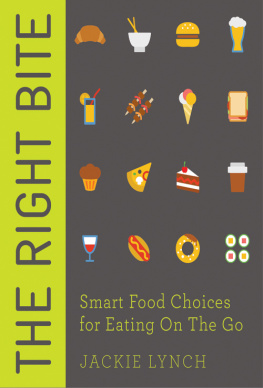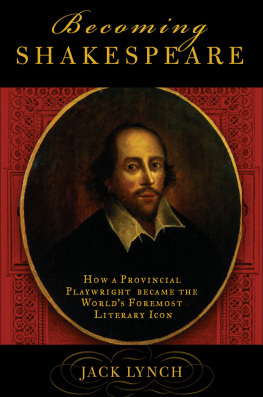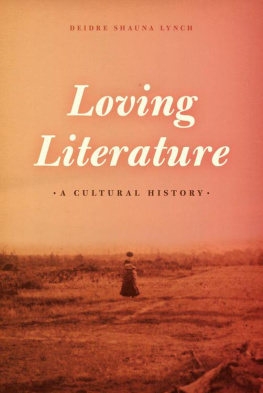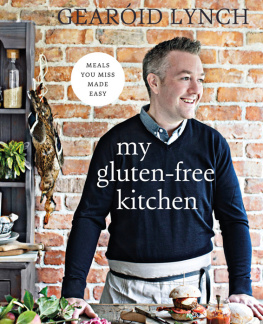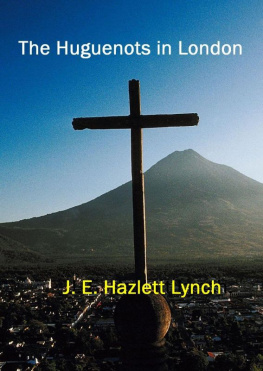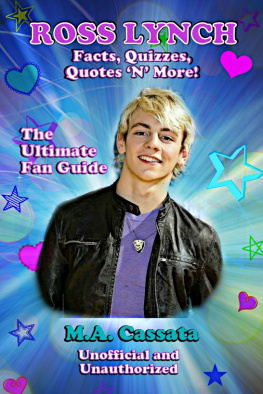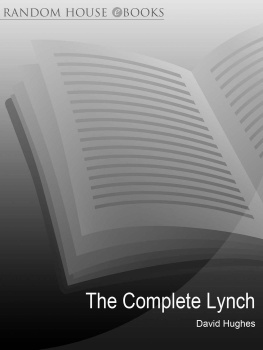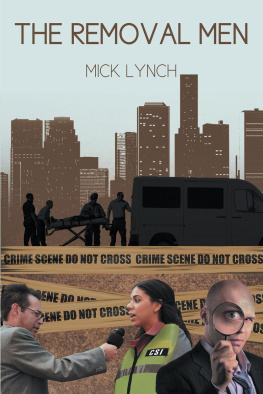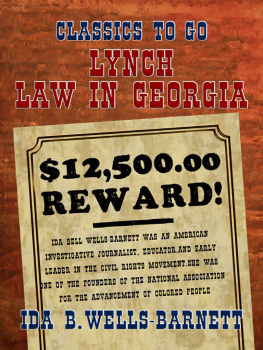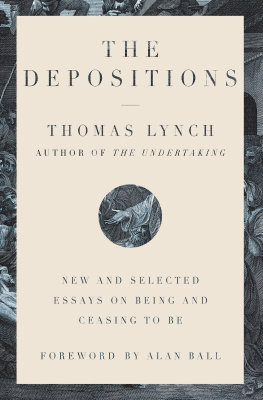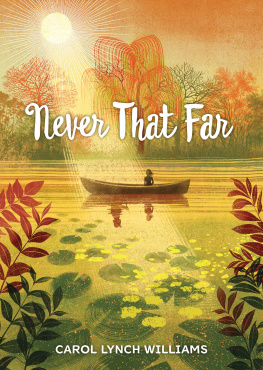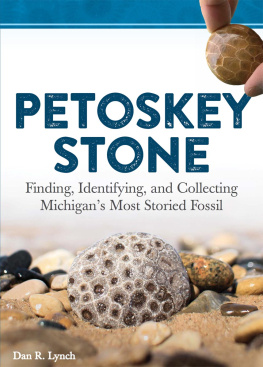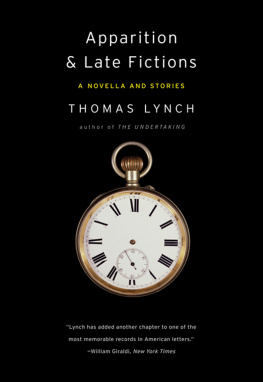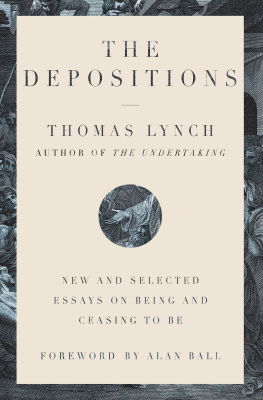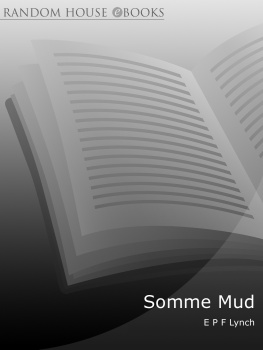70-19 B.C.
K URT D. C OBAIN
Acknowledgments

T hanks are due to John Lanchester of The London Review of Books and Alexandra Ringe of Harpers for the early publication of several of the essays that appear in this collection. To Gordon Lish, who published my first poems and essays, I owe permanent thanks. As I do to Jill Bialosky at W. W. Norton whose trust in and efforts on behalf of this manuscript have brought it into being.
I shall always be in arrears in my indebtedness to Robin Robertson at Jonathan Cape, well met in Dublin in the Spring of 1989, who has edited my poems and who first suggested a book of this type over raw fish in London a few years ago.
Likewise, I am grateful to my agent, Richard P. McDonough, for his championship of this manuscript and his loyalty and friendship.
Thanks also to the men and women at Lynch & Sons Funeral Directors with whom I work. Their dedication and professionalism have afforded me the time to complete this book. Especial thanks are due to my brother Edward, whose duties have redoubled in my absences. He is, like the man he was named for, a true caregiver, a good and decent man. I am grateful, also, to my neighbors and friends in Highland Township and Milford, Michigan, for entrusting to our family, for nearly twenty-five years now, the care of their families in difficult times. By sharing with me the details of their lives and deaths, they have made me aware of just how precious we are to one another. In the preparation of these essays, I have been keenly aware of the obligation to respect their privacy. Thus, some of the events and characters recorded here are composites, cominglingstruths renamed, reshaped, refaced, but finally told, in ways that protect the trust theyve given me.
For related reasons, I am ever in the debt of writers and friends, Irish, English, Scots, and Americans, who have let me write, sometimes fast and loose, about our friendships.
I am thankful to Pat Lynch, Mary Howell, Melissa Weisberg, Audrey Kowalski, and Fr. Matthew Lawrence, each of whom read and gave valuable commentary on this manuscript in its making.
To Karen OConnor of WGBH in Boston and the office of the Oakland County Medical Examiner, I am indebted for material mentioned in Uncle Eddie, Inc. Also, to Ron Willis, cemetery sexton and thinking man, I owe thanks for his willingness and ability to take the other side of any argument, without which my own would never approach clarity.
To my daughter, Heather Grace, and my sons Tom, Mike, and Sean, I am ever beholden for their patience, enduring, as they do, draft after draft of a work in progress.
No vocabulary of thanks and praise includes the words sufficient for what I owe to Mary Tata who has known this text from the very first.

A t first I thought it meant he took them under. It was the fifties and I was the child, one of several as it turned out, of an undertaker. This was a fact of greater matter to the kids I hung out with than to me.
What does he do? one would ask. How does he do it?
I said I thought it had to do with holes, with digging holes. And there were bodies involved. Dead bodies.
He takes them under. Get it? Under ground.
This would usually shut them up.
Still, I wasnt as certain as I tried to sound. And I wondered why it wasnt underputteryou know, for the one who puts them underground. Surely to take them seemed a bit excessive. I mean if they were dead. They wouldnt need the company on the way. Like you would take your sister to the drug store but you would put your bike in the garage. I loved the play of words and the meanings of them.
At seven I was sent to learn the Latin required of an altar boy. It was my mothers idea. She said if I was stingy with God, God would be stingy with me. This had the ring, if not of truth, then of my mothers will, which was, to me, the nearest thing to truth. The Latin was magic and mysteriousthe acoustics made rich by its abundant vowels. Every Tuesday at four oclock Id meet with Fr. Kenny from St. Columbans to learn the ancient syllables by heart. Hed given me a card with the priests part in red and my part in black. He had come from Ireland and had been at seminary with my fathers uncle: a priest who died young of tuberculosis, after whom I was named. I was vaguely aware of a conspiracy hatched between my mother and Fr. Kenny that would eventuate in my ordination. I heard a full confession of the particulars from Fr. Kenny himself, years later, after hed retired and returned to Salthill in Galway. The world and the church had changed too much for him.



